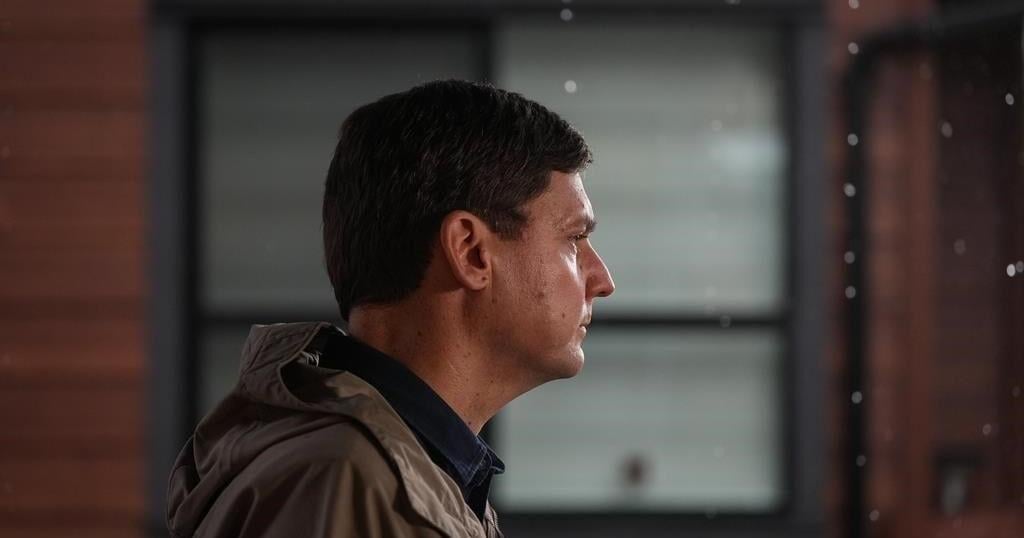VANCOUVER – In the seven years since the NDP came to power in British Columbia, food prices have jumped by almost 30 per cent.
Rent and transport costs are up by about a quarter, while the cost of filling up with gasoline has risen by almost half.
It’s been a painful process that has made the cost of living a major battleground ahead of the Oct. 19 provincial election. But experts say that while some provincial policy strategies can have an impact, much of the inflationary pressure has global origins.
University of British Columbia Sauder School of Business associate Prof. Werner Antweiler said interest rate and fiscal policy can effect change in housing prices, but the pressures that have forced up grocery prices cannot be easily influenced at a local political level.
In a note published through the research agency C.D. Howe Institute, Antweiler said Russia’s war on Ukraine was a fundamental reason why grain, fertilizer and energy costs had cascaded into food costs.
“The blame for high food prices falls neither on greedy retail chain CEOs nor on Canada’s carbon tax,” Antweiler said in the note. “Most contributing factors can be attributed to global sources.”
Nevertheless, the issue of costs has been a key driver of political debate in B.C.
On Sept. 12, before the campaign period officially began, B.C. NDP Leader David Eby announced that his party would end the provincial carbon tax on consumers if the federal mandate requiring such a tax was removed by the party that wins the next federal election.
Eby cited “rising interest rates” and “high global inflation” as cost pressures that had eroded political consensus on the carbon tax, which Antweiler said had been used as a “scapegoat.”
B.C. Conservatives Leader John Rustad described the move as a “desperate attempt” to boost support and called the carbon levy a “disastrous tax that punishes families and businesses.”
B.C’s consumer price index jumped by more than three per cent for each of the last three years — including a 6.8 per cent spike in 2022 — and is about 56 per cent higher than it was 2002. That’s about one-tenth lower than all of Canada at 62 per cent.
“Two, three per cent is no problem,” said Simon Fraser University finance Prof. Andrey Pavlov of the price of inflation.
“The moment it becomes six or seven, people notice that right away. And when it’s not just one item, but it’s everything you consume, people who are living on a tight budget to begin with absolutely notice it.”
The B.C. Conservatives list cost-of-living at the top of the party’s policy plan on its website, calling for the privatization of auto insurance, supporting parents directly with daycare costs, and removal of the carbon tax.
The heavy focus on daily costs doesn’t surprise Pavlov, who said Canada’s inflation rate had reached a level in 2022 that was difficult to ignore.
“Inflation has tapered off, but at some point it was up to six per cent, seven per cent in Canada,” Pavlov said, adding the prices are not coming down. “And when it’s that high, people feel that immediately, because every single item you’re shopping for is certainly more expensive.”
The issue isn’t restricted to personal living costs. Business groups say higher costs in B.C. have translated to labour shortages as people seek more affordable destinations.
BC Chamber of Commerce president Fiona Famulak said while some cost factors are beyond provincial control, the government was able to lower taxes and provide other measures granting some relief.
“We have a sign on our provincial storefront that says to the world, British Columbia is closed for business,” Famulak said of the high costs and their knock-on effects. “It’s time to flip that sign.”
Pavlov said there are adjustments B.C. can make locally, even given the global forces at play on items such as groceries.
The province could boost local goods and services to insulate B.C. more from global inflationary pressures, he said.
“That will help British Columbians manage that inflation much better,” he said. “Unfortunately, I don’t see that. I haven’t seen that from our current government. On the contrary, one measure after another imposes additional risk and costs on doing really any business in British Columbia, and as a result, it’s very difficult to provide goods and services in British Columbia locally.
“That really depends a lot on what happens with the election. If whichever government comes in takes this seriously and actually helps businesses operate in British Columbia … then it will make it much easier for people to manage those higher prices.”
This report by The Canadian Press was first published Sept. 26, 2024.

























